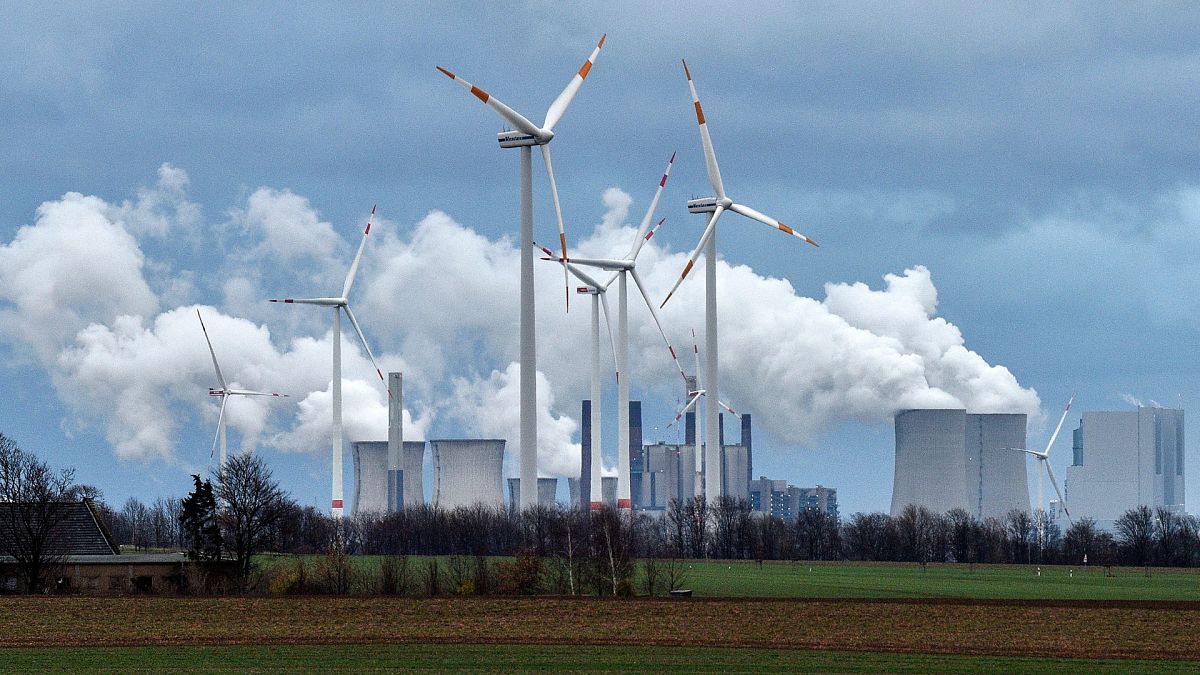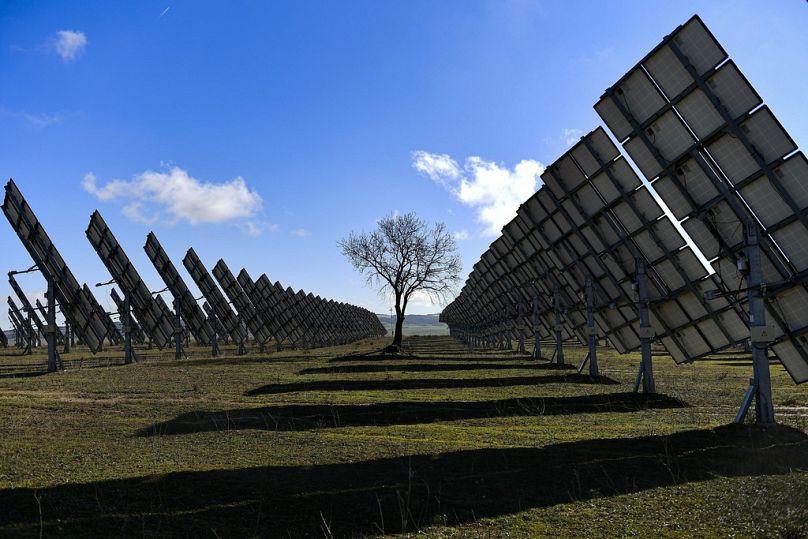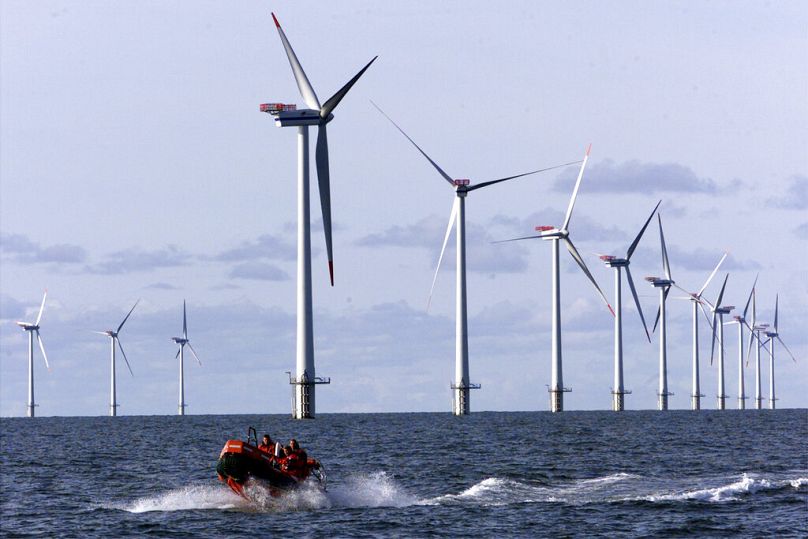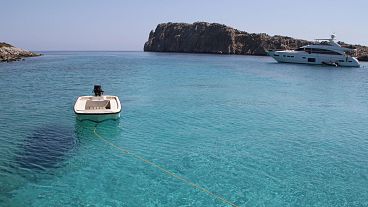The State of the Energy Union report is released annually by the European Commission.
Solar and offshore wind are soaring in Europe and the EU is on track to quit Russian fossil fuels. The good news was shared in the European Commission’s annual State of the Energy Union report, published today.
The report looked at energy across the bloc in the last 12 months and found that it was a record year for solar with 60 per cent more new energy-generating capacity. New onshore and offshore wind capacity was also 45 per cent higher than in 2021.
The Commission says it used the energy crisis following Russia’s invasion of Ukraine to “accelerate the clean energy transition”, working towards making Europe the first climate-neutral continent by 2050.
Imports of Russian gas also fell to 40-45 billion cubic metres this year, compared with 155 bcm in 2021.
Renewables are increasing - but not fast enough
Overall, the EU’s greenhouse gas emissions decreased by around 3 per cent in 2022 - a total reduction of 32.5 per cent compared to what they were in 1990. The aim is to cut net greenhouse gas emissions by at least 55 per cent by 2030.
In May this year, the EU produced more electricity from wind and solar than fossil fuels for the first time ever, the Commission says.
Spain, Portugal and Belgium were just a few of the countries which broke renewables records in 2023 - despite drought-driven dips in hydropower production. New solar power helped push Portugal above the 50 per cent mark in May.
A recent study from energy think tank Ember found that fossil fuel energy generation hit a record low in the EU during the first half of 2023.
In 2022, the Commission’s report says overall 39 per cent of the bloc’s energy was generated by renewables.
But, having navigated the worst effects of the energy crisis, now isn’t the time for complacency, the Commission adds.
“Energy markets remain vulnerable, fossil fuel subsidies have increased during the crisis, inflation is still high, our critical infrastructure needs to be protected, including from sabotages,” it said.
In the past year, legislative targets were agreed for a minimum share of 42.5 per cent renewable energy in the EU by 2030 with the ambition to reach 45 per cent.
Energy efficiency targets were also increased including reducing final energy consumption by 11.7 per cent by 2030.
The Commission warns, however, that EU countries aren’t expanding renewable energy fast enough to reach the legally binding target of 42.5 per cent by 2030.
Alongside the release of the report, it published a plan to support Europe’s wind energy industry which is struggling with high inflation and increasing competition from companies in China.
2030 is a first reality-check for climate action, NGOs say
A coalition of NGOs has also raised concerns over member states’ National Energy and Climate Plans (NECPs).
A separate, independent report from the Climate Action Network (CAN) found that several countries are not meeting the minimum EU climate and energy requirements for 2030.
Denmark, Finland and the Netherlands were among those member states failing to meet set EU targets and contribute their national share of emissions-cutting. CAN says numerous others have not outlined sufficient national commitments for energy efficiency either.
While there is progress in some areas - like the uptake of rooftop solar panels - the independent assessment highlights a “glaring contrast between the urgent demand for accelerated climate action and the sluggish on-ground progress” according to CAN Europe’s director Chiara Martinelli.
With national energy and climate plans being updated for the first time since 2019, many countries are behind schedule.
“While this assessment exposes the inadequacy of the national climate and energy plans with the needed level of climate action, countries still have eight more months to set things right and prevent a lost decade,” says CAN Europe’s policy expert, Federico Mascolo.
“2030 is a first reality-check for climate action and failure to meet this milestone will severely hamper future efforts to mitigate the impacts of climate change.”





